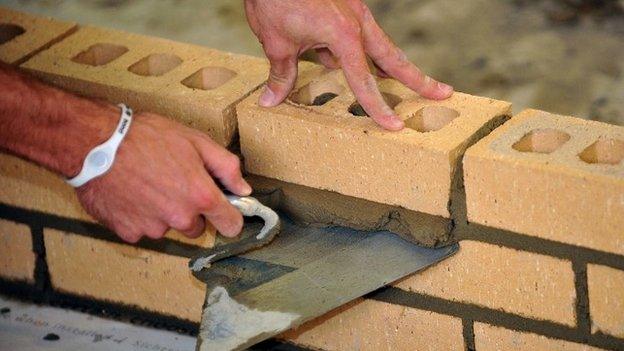Why competing in the skills Olympics could boost UK growth
- Published

Vuvuzelas, samba dancing, flags and a whole lot of feel good factor - a huge party has been taking place in Brazil but for once its not to mark a sporting event.
Instead 1,200 young people from around the globe gathered to compete for medals in the World Skills competition.
Limbering up for the UK was Robert Johnson, in the Plastering and Drywall category.
He left school at 16 to work for his dad's plastering company in Middlesbrough.
"I've been practising three or four days a week as well as helping my dad keep the family business going," says Robert, who has six years plastering experience.
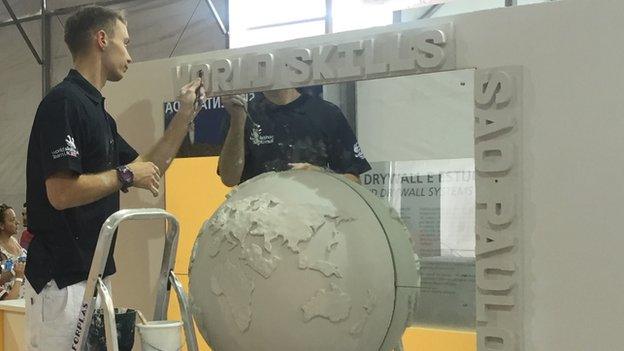
Robert surrounded his plaster globe with mirrors to make it appear to float
Alongside building skills, under 25 year olds are displaying their talents in trades as diverse as landscape gardening, plumbing, electronics, carpentry, graphic design, robotics, baking and beauty therapy.
As at any championship team morale is vital.
The New Zealand team start every morning with the Haka and the Swiss team have a 600 strong supporters club who follow their finalists around the world.
And companies turn up to assess the potential talent for recruitment.
"Like sport stars we need to reward technical people," says Dr Ji Oh Song, Executive Vice President of Samsung. He has been coming to this event for 9 years.
"This is a more important area than sports. This is related to the productivity and wellbeing of people."
In his home country, Korea, World Skills finalists are treated like stars, with winners receiving gifts including cash and houses.
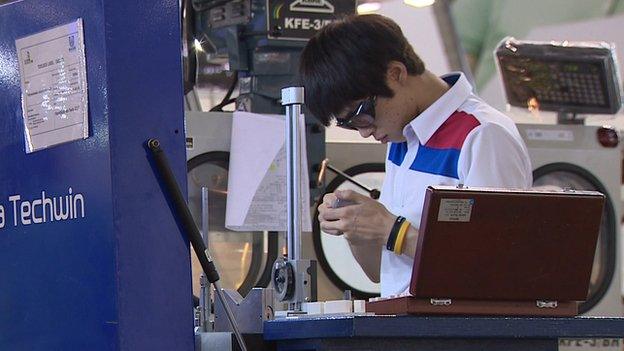
Korea's Yeong Hwan Seo will be feted on his return home having won the gold medal for plastic die engineering

Samsung's Ji Oh Song says vocational skills are more important than sports skills
Team USA were invited to meet the President at the White House and the French finalists went to the Élysée Palace. Here in the host nation, Brazil, winners will have their university fees paid for them.
By contrast the UK team got sandwiches and a speech from the Dragon's Den entrepreneur, Theo Paphitis.
Governments who don't really get behind the games here are missing a real opportunity to make a difference on home soil, according to Jet Bussemaker, the Minister of Education, Culture and Science in the Netherlands.
The Netherlands plans to put their finalists' faces on posters at bus stops all over the country.
"What these guys are doing here is very, very difficult but it is very much needed for the economy of tomorrow," she says.
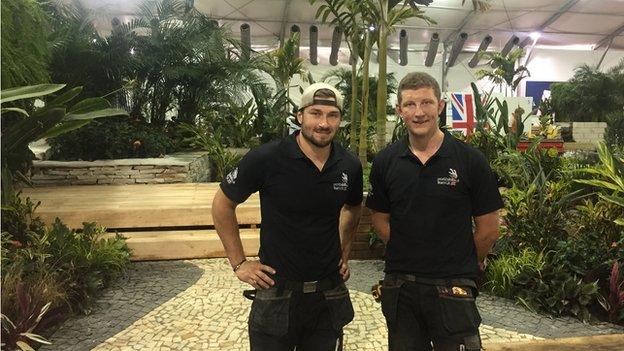
Jonathan Gill and Matthew Beasley won silver medals for landscape gardening
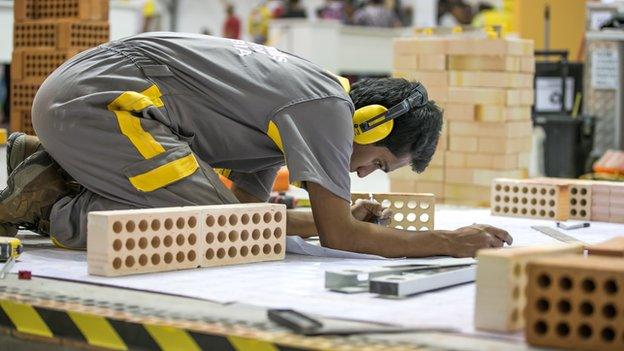
Skills being tested range from construction skills to beautician services. Photo courtesy of WorldSkills International
After four intense days the competitors put the finishing touches to their works.
Florists are completing their colourful arrangements and fresh bakery smells waft from the kitchen area.
Robert the young plasterer from Middlesbrough, has made a globe out of plaster and surrounded it with mirrors to give the impression it is suspended mid-air.
Welder, Reece Taylor, has battled through the competition with a broken arm, refusing to get a cast put on in case it rules him out of the competition.
There's a consensus however that although team UK have given it their all, more needs to be done at home to recognise their efforts.
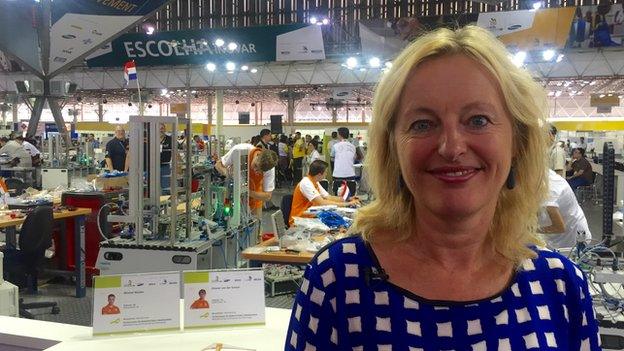
Jet Bussemaker, Minister of Education in the Netherlands says these skills are critical for the economy of the future
"If you compare it to the Olympics we get nowhere near the recognition that the athletes get there," says George Callow, who won gold for cabinet making at the World Skills final in Leipzig in 2013.
"Everyone competing here is an athlete in their trade and they're at the top of the game in the world."
Allan Cook, chairman of Atkins, one of the biggest engineering companies in the UK tends to agree that Britain is failing to inspire a young generation of vocational workers.
"We think we need 1.8 million engineers; graduates, technicians, apprentices into our industry by 2020. Without them we will struggle," he says.
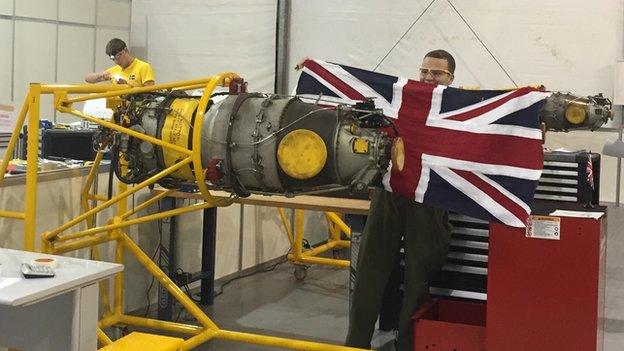
Aircraft maintenance finalists work on helicopter engines brought in for the event.
Here in São Paulo, the results are in and as expected the big winners of the night were Korea and Brazil, but it's been a good competition for Team UK with three gold, four silver and two bronze medals.
Cabinet maker Edward Harringman, beauty therapist Rianne Chester and plumbing and heating finalist Gary Doyle all came top of the shop. The landscape gardeners and aircraft maintenance lads are chuffed with their silver medals too.
Robert, the plasterer, didn't quite make the podium but did get a medallion of excellence and can now officially say he is one of the best plasterers in the world.
- Published13 July 2015
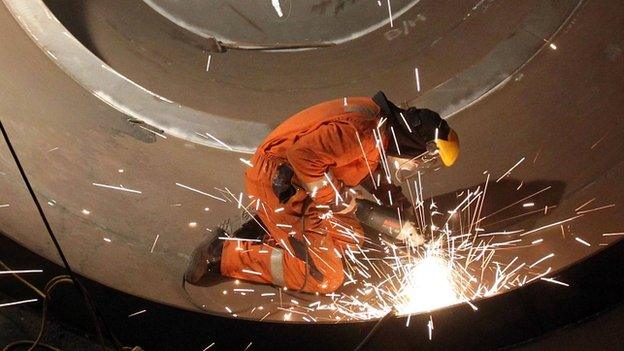
- Published3 July 2015
